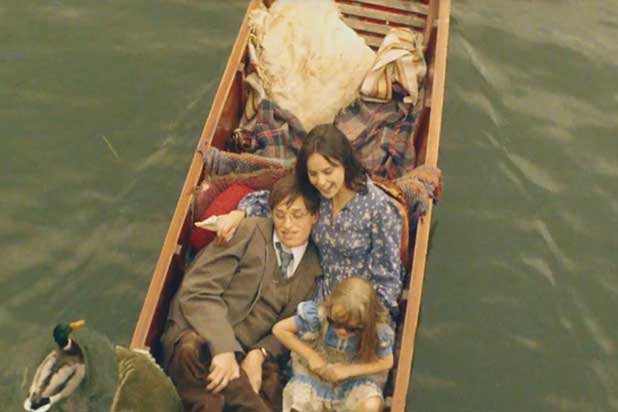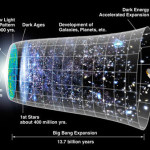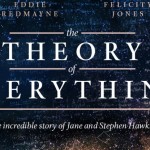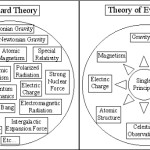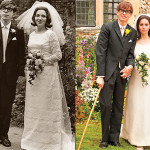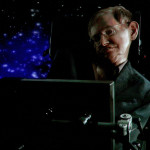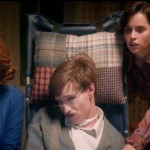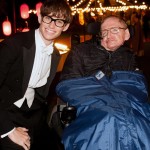Biopic syndrome strikes again! This time it’s the story of a posh white bloke played by another posh white bloke, but the subject is no ordinary posh white bloke. As it turns out he is a genius in the sphere of mathematics and physics, is afflicted by the debilitating effects of motor neurone disease, and has had a bit of juicy scandal in his private life, thereby making him perfect biopic material. As Tim Robey put it in The Telegraph:
“With the release of the Bobby Fischer film, Pawn Sacrifice, the Alan Turing film, The Imitation Game, and the Stephen Hawking film, The Theory of Everything, it’s a bumper year for a certain type of earnest, pedigreed prestige biopic. All three of these men are intellectual giants of the 20th century; all had serious physical and psychological hurdles to overcome.”
While I can’t speak for the other two, I imagine they follow a similar course, such that The Theory of Everything is selective about which bits of salacious gossip are covered, having been adapted from Jane Wilde Hawking‘s autobiography about her life with Hawking (“Music to Move the Stars.“) What you get is one facet of the subject but certainly not the full diamond – even, one might say, an airbrushed biopic.
For example, Hawking’s ex-nurse and second wife does make it to screen, but the story of their marriage and the allegations of abuse are nowhere to be seen. And as for Hawking’s faults and flaws, nary a word to be heard. This is a regular fault of biopics – they are often puffs more than accurate and balances portraits. Some events make it to screen, where others that you might consider to be significant are sidelined. Dramatic licence takes precedence.
Of course, it is just possible that you’ve been on the moon these past 50 years or so and haven’t heard of Professor Stephen Hawking, but here we follow him from being the shy and clumsy brainbox in specs in 1963 Cambridge, through his search for the topic of his PhD, the diagnosis of MND and being given 2 years to live, Jane declaring her love and apparently giving him the strength to fight on, through marriage and children, the meteoric (or should that be cosmic?) rise of a career coinciding with the gradual decline of the marriage and the reduction of said cosmologist to permanent mobilisation by wheelchair and the inability to talk – not that it silenced him.
Hawking is brought to the screen courtesy of my daughter’s heartthrob, Eddie Redmayne, and a very fine job Redmayne does too, probably to showered with awards. I’ve heard Redmayne’s performance described as “remarkable”, though playing a person in a biopic is a very different animal to the job of creating a credible fictional character from scratch, all the more so when the subject is still, contrary to his original clinician’s prognosis, still very much alive and active (mentally at least) at 73.
Not the first time disability has been portrayed with such technical excellence of course – you may remember Daniel Day Lewis won his first best actor Oscar for playing Christy Brown in My Left Foot, among other instances, though I felt more respect for the producers of Breaking Bad for their decision to cast R J Mitte, an actor with mild cerebral palsy, to play a similarly afflicted character. As Frances Ryan puts it in The Guardian, “we wouldn’t accept actors blacking up, so why applaud ‘crippling up?'”
In this case I think it justifiable, since Redmayne has to depict the descent from dyspraxia to full scale loss of muscle control and co-ordination, a bravura feat to be viewed with awe by some actors, though essentially a feat of technical body control that should not be behind the wit of nimble and competent actors. Perhaps the most moving moment of the film is where the chair-bound Hawking, on-stage for a prepped interview via his electronic voice box, has a fantasy moment where he untwists his legs and body, stands, then descends to pick up a pen and hand it back to a young admirer.
However, what is more impressive is how he conjures up not just the physical manifestation of Hawking but his brilliance and his personality too, notably the impish sense of humour for which the eminent professor is well renowned.
But let’s return to the theme of dramatic licence, since it is seldom deemed sufficient within the ruleset of commercial movie-making merely to demonstrate a caricature, nor even character development through the onset of illness alone. Fact of the matter about academics in wheelchairs is that they don’t do an awful lot of dramatic things like rescue children from burning buildings or win gun battles against terrorists, and most of their life is for the purposes of audiences expecting to be entertained, well, pretty dull and highly cerebral.
For a biopic to work there must be moments of joy and tragedy, maybe even the odd melancholic interlude, but the overall mood must be human and buoyant, with a tear must prickle the eyes of Mr and Mrs Joe Public at regular intervals. As Robey puts it, once more:
“If the films face challenges too, it’s how to wrestle these men’s stories away from hackneyed templates – how to extricate themes, generate emotions and explain concepts we don’t feel we’ve had drummed into us dozens of times before.”
So therein lies the other great challenge: how to communicate the principle behind the theory of everything, Hawking’s lifelong and as yet unresolved ambition, to audiences whose main preoccupation might be who is screwing or shouting at whom in Eastenders. Terry Johnson and Nicholas Roeg did a brilliant job of simplifying relativity in Insignificance, as did Ron Howard and Akiva Goldsman with A Beautiful Mind, creating a world of mathematics and delusion from the work of John Forbes Nash. It’s fair to say that the maths in TToE is deliberately intended to go over the heads of 99.9% of the audience, but presumably has to be sufficiently accurate to satisfy the 0.1% of pedantic physics PhDs who will look in for a smirk.
If anything, I wish the film had struck a balance closer to academic rigour and marginally less on the romantic triangle with Jane’s future husband Jonathan Jones (Charlie Cox), an apparent saint, widower and churchgoing choirmaster who selflessly helps the family, Stephen and all, with heavy hints that he has been entertaining Jane in private and possibly fathered her third child, nudge nudge, wink wink. Why? It’s all a bit too pat, too twee, too autopilot and not a true exploration of true emotion, though it tries when Jane announces she is leaving Stephen, who subsequently married his nurse.
That said, praise to Felicity Jones, not least for her Oscar nomination. Playing opposite a character with gargantuan ego (and let us not kid ourselves that Hawking is other than self-aggrandising in lapping up the attention conferred by his academic and popular acclaim) like Hawking, she has a difficult balancing act but achieves it well without trying to hog centre stage. I don’t think she will win, but a nomination will deservedly open up further offers and chances to demonstrate her skills. Plaudits also for a supporting cast that includes a favourite actor of mine, David Thewlis – a specialist in playing meek and mild men with much more to them than meets the eye.
So then, within the confines of the biopic medium nobody could argue that this is not a good effort at aspects of the life of a living legend, with doubtless others to follow in the production run. Who knows, maybe even Hawking, the sequel, when he finally solves the theory of everything and shuffles off this mortal coil, 60 years beyond expectations? My issue is largely with the medium of biopic and how it manipulates audiences rather than telling the truth, the whole truth and nothing but the truth. But I appear to be in a minority, so go see and enjoy – but don’t be afraid to go against the tide and be critical.
This is still a spun version of Hawking. Looking at the pictures above, you will see Hawking with Redmayne on set, not an accidental meeting, for sure. I’m quite sure Hawking is chuffed to bits with his portrayal, and with Anthony McCarten‘s script and James Marsh‘s direction. And why not, since he comes out of it pretty darn well. Almost, at times, too well.

